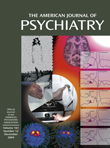Withdrawal Syndrome After Delayed Tramadol Intake
Ms. A was a 51-year-old nonsmoking woman with breast cancer, lung metastases, and brachial plexopathy, with no history of chemical or alcohol dependence. She was referred to the outpatient clinic because of severe pain. She had been taking tramadol for 2 years: 50 mg t.i.d. increasing to 100 mg t.i.d., plus 50 mg intramuscularly as needed. Switching to a strong opioid was proposed, but Ms. A refused for 2 months, notwithstanding her uncontrolled pain, because she said she became very agitated when delaying or skipping the tramadol administration, and she had learned to recognize the onset and then fear this nervousness, which reversed only by taking tramadol.One day she did not take tramadol twice in a row. After a few hours of having missed the first administration, she became very nervous. Upon missing the second dose, she began to have anxiety, anguish, a feeling of pins and needles all over her body, sweating, and palpitations. She knelt down and rolled on the floor, pressing her hands against her head so as “not to feel and not to understand what was happening” and begged her husband to take her back home immediately so she could have her tramadol dose. When we asked about her pain on that occasion, she replied, “I do not know because I felt too bad.” She described what happened very clearly and with great preoccupation because she felt like a “drug addict,” and when we suggested changing the opioid, she agreed so as not to undergo another similar experience. We stopped tramadol and prescribed oral methadone, 5 mg t.i.d., reducing it to 3 mg t.i.d. after a week, which resulted in analgesic benefit and no adverse effects.
References
Information & Authors
Information
Published In
History
Authors
Metrics & Citations
Metrics
Citations
Export Citations
If you have the appropriate software installed, you can download article citation data to the citation manager of your choice. Simply select your manager software from the list below and click Download.
For more information or tips please see 'Downloading to a citation manager' in the Help menu.
There are no citations for this item
View Options
View options
PDF/ePub
View PDF/ePubGet Access
Login options
Already a subscriber? Access your subscription through your login credentials or your institution for full access to this article.
Personal login Institutional Login Open Athens loginNot a subscriber?
PsychiatryOnline subscription options offer access to the DSM-5-TR® library, books, journals, CME, and patient resources. This all-in-one virtual library provides psychiatrists and mental health professionals with key resources for diagnosis, treatment, research, and professional development.
Need more help? PsychiatryOnline Customer Service may be reached by emailing [email protected] or by calling 800-368-5777 (in the U.S.) or 703-907-7322 (outside the U.S.).

